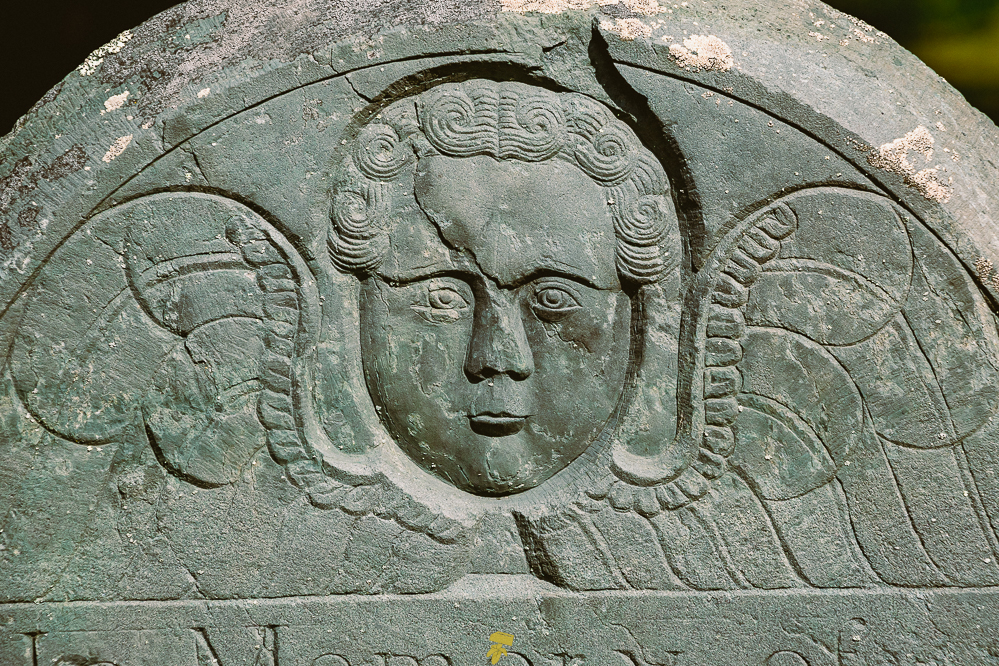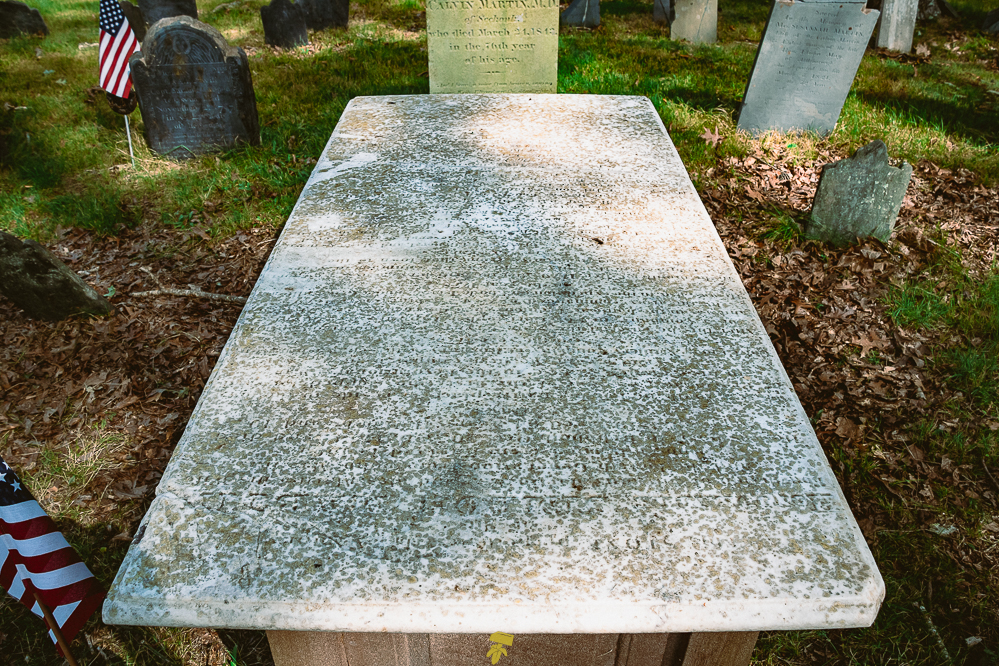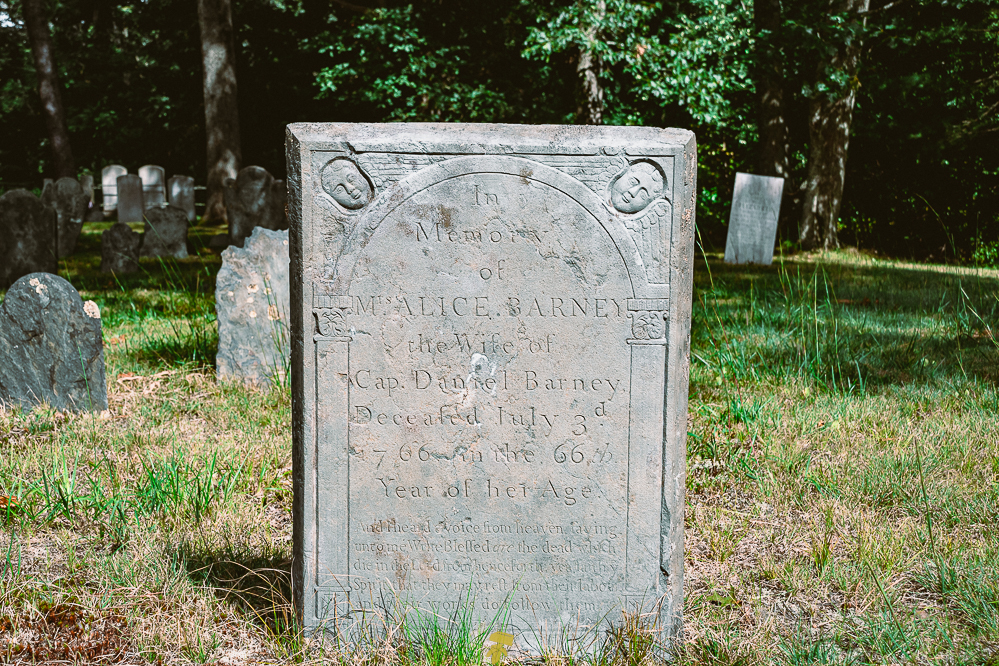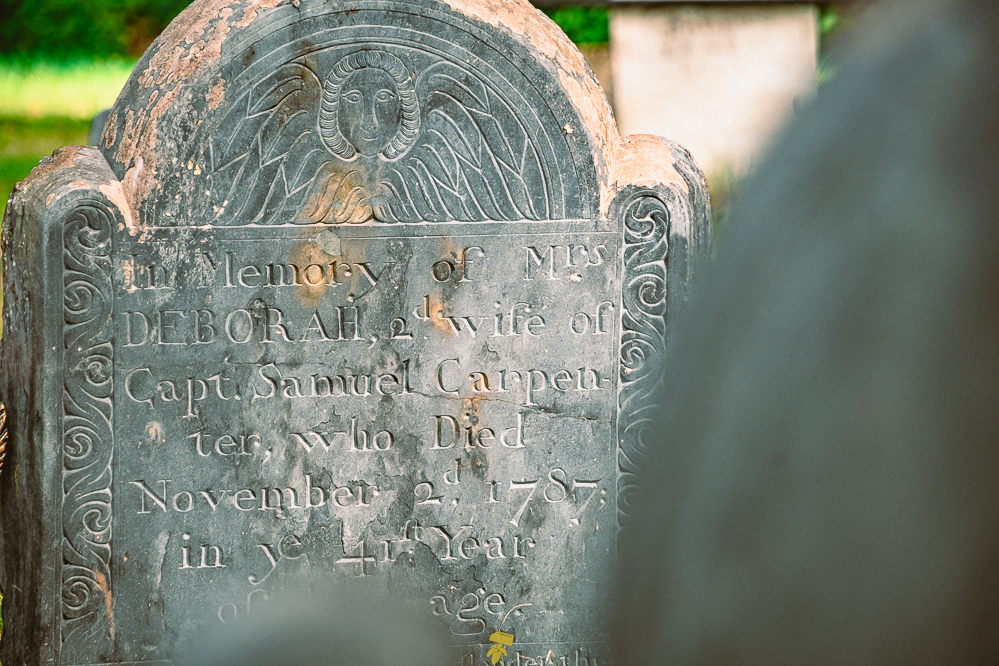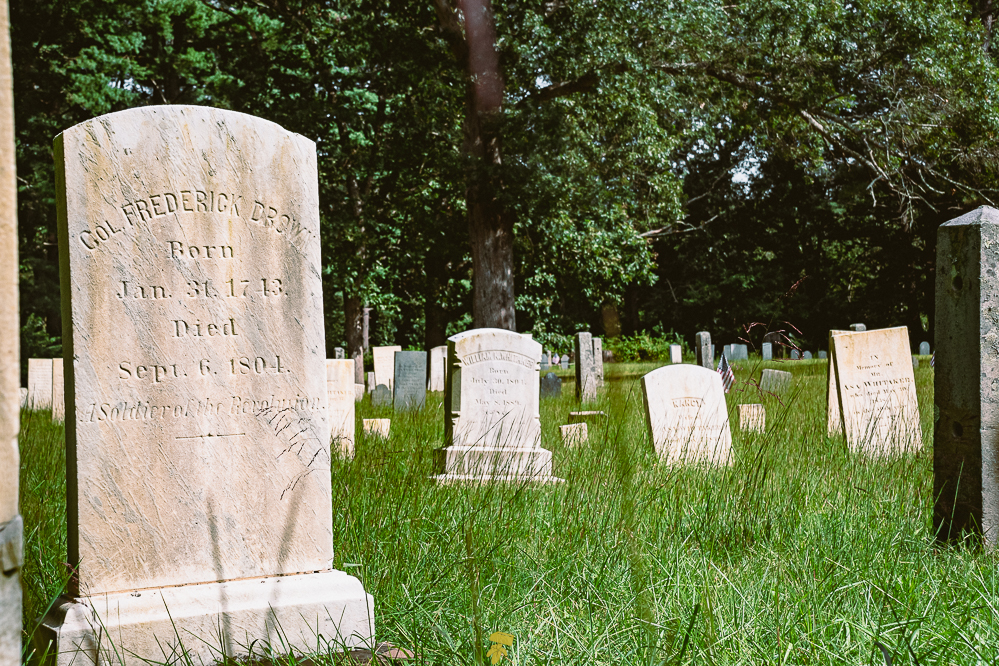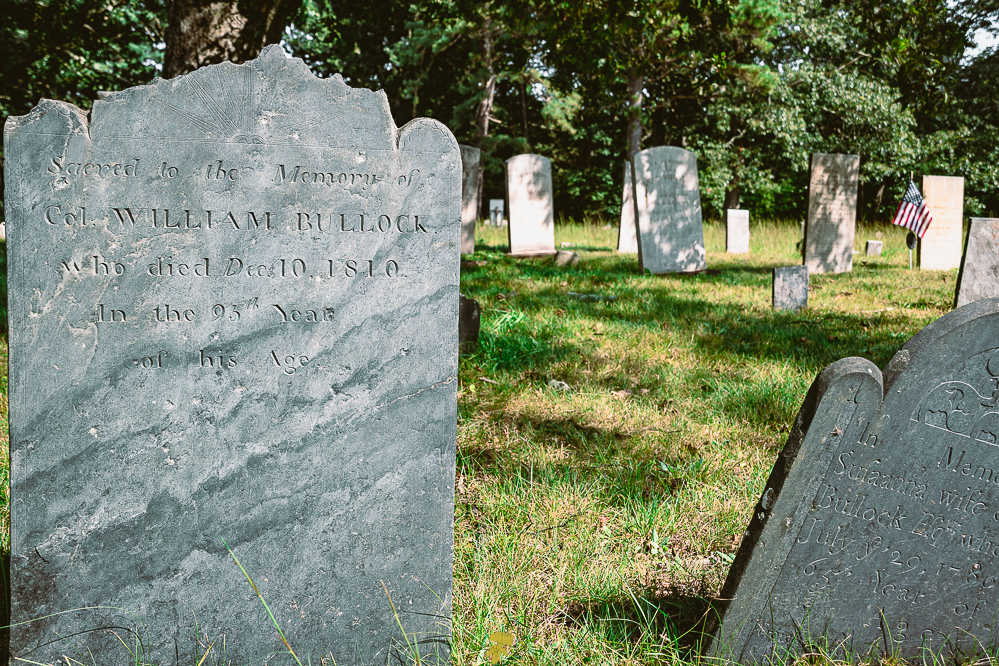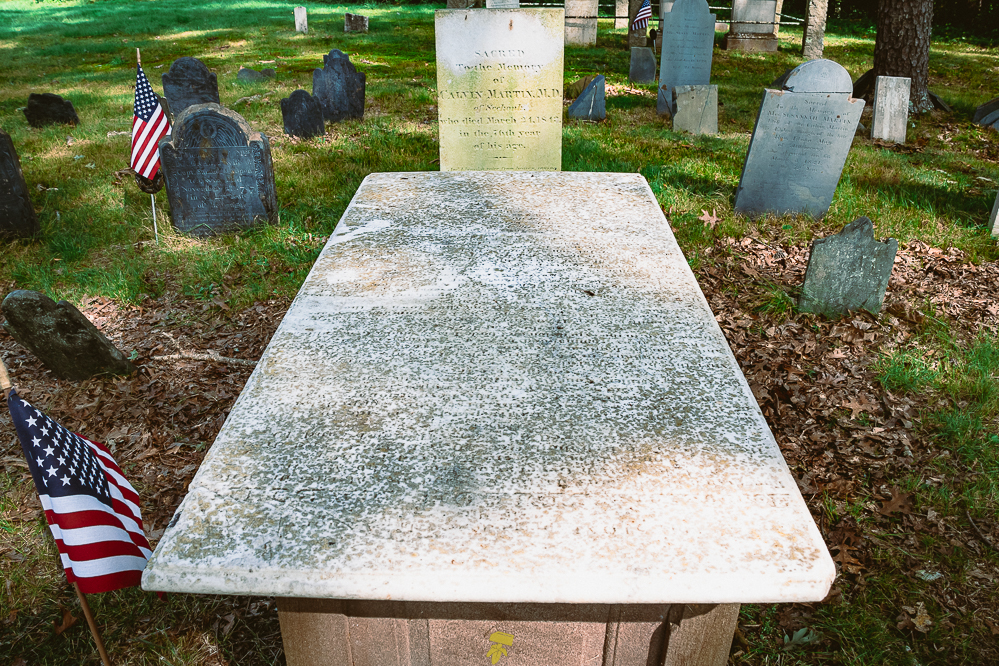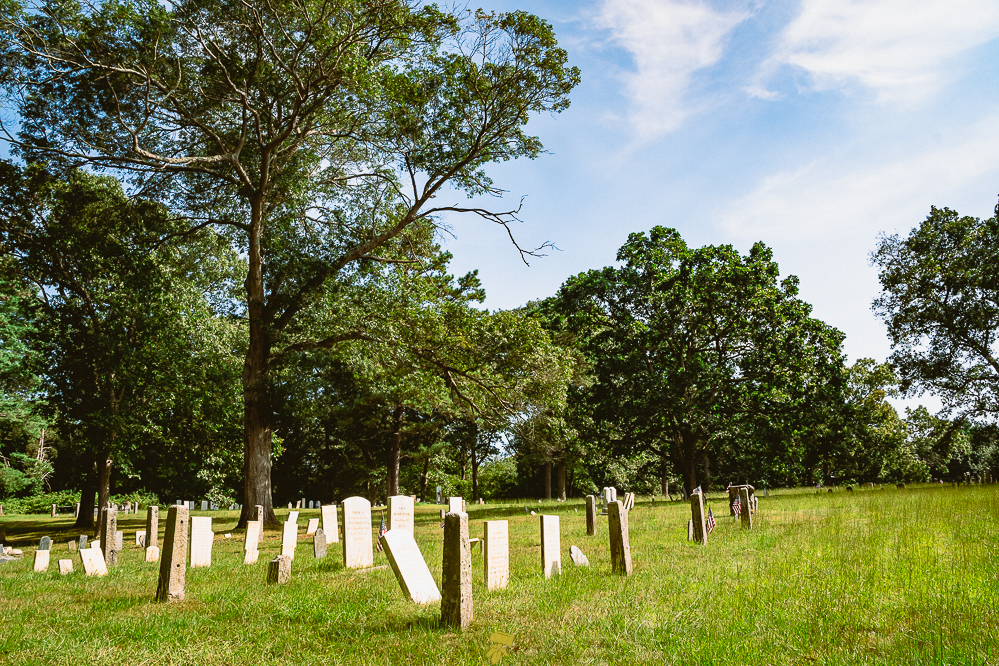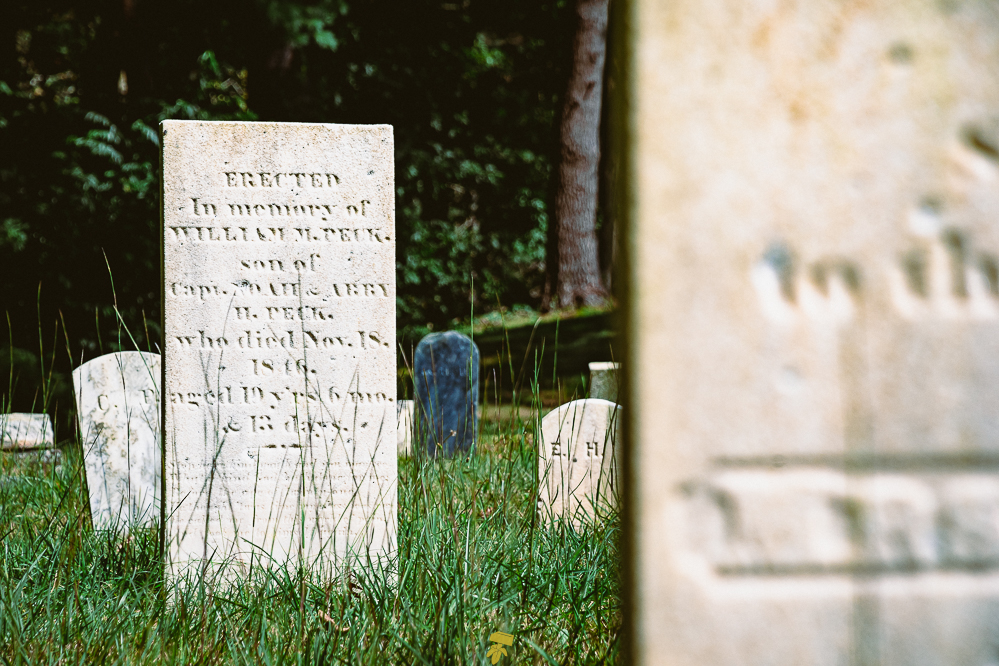The longest epitaph in the United States was written by Simeon Martin, a captain during the American Revolutionary War, which can be found at Burial Place Hill in Rehoboth. Simeon was born to an old family who had lived in Rehoboth going back to 1665, five generations, with the graveyard not far from his home.
Also known as Rehoboth Historical Cemetery 33, Burial Place Hill has been used for burials by Plymouth-area residents since the 1620s with more than 3,000 interred. Many of the stones are nearly illegible due to weather and moss growth.
The epitaph consists of 405 words, giving a summary of his family tree, military history, and who he generally was. You can read it below. Burials span as far back as the first English settlers aka The Pilgrims” when they built their first meeting house in Rehoboth with Mayflower passengers including Governor William Bradford and William and Mary Brewster are buried here. These early grave markers were made of wood until the seventeenth century, and have not survived to reach today. The oldest known stone is that of Edward Gray, a large owner of real estate, who died in 1681.
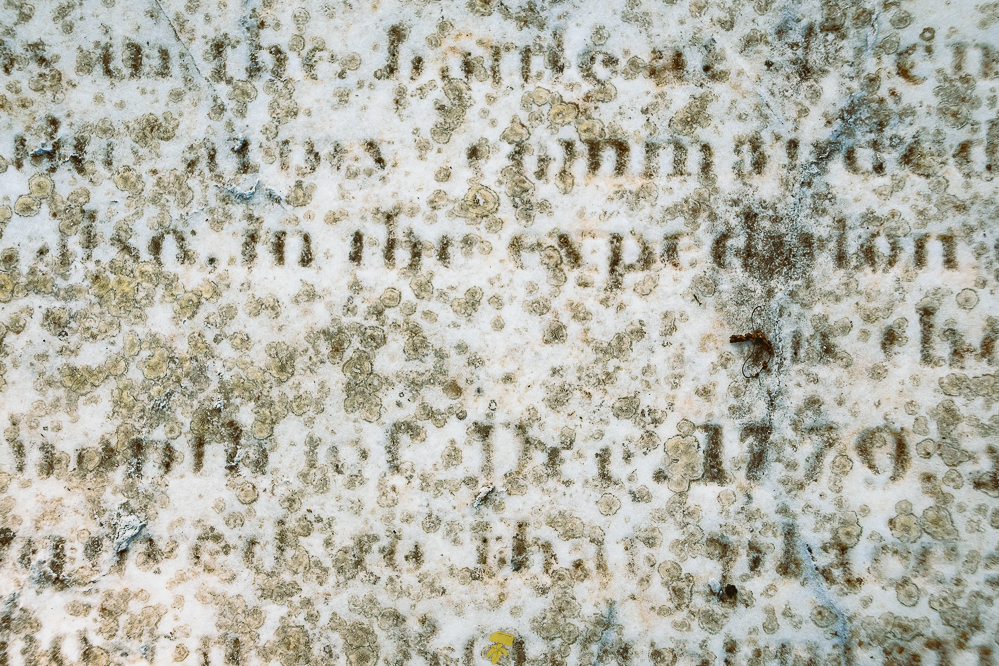
The epitaph of Simeon Martin reads:
“This stone perpetuates the Memory of the Honorable Simeon Martin, Fourth son of Silvanus Martin, Esq. and Mrs. Martha, his wife; and the Fourth Generation from John Martin, who immigrated from England in 1665.
He was born in Rehoboth Oct 20, A.D. 1754 and died Sept. 30, 1819 aged 64 years, 11 months and 10 days.
When a youth he left his native place to reside in the town of Providence; was one of the first who stepped forward in his Country’s cause in the Revolutionary War; and was in the first campaign, in Col. Crane’s Artillery Company at Roxbury with Gen. Washington, in the year 1775, After this he entered the state service; was appointed Captain of a Company in Col. Christopher Lippitt’s Regiment and was in the battle of Trenton, when the enemy was defeated by the army commanded by Gen. Washington in 1776.
He was also, in the expedition on Rhode-Island under Gen. Sullivan in the year 1778. In the month of Dec., 1779, after the British evacuated Newport , he removed to that place; and was for a number of years, chosen a Representative from the town to the General Assembly.
He had sustained the offices of Adjutant General and Major General of the Militia of the State; was for several years, elected Lieutenant Governour, until he declined a re-election in 1816; and was, at his death, a member of the Corporation at Brown University,
He was a man of excellent sense, a gentleman in his manners, benevolent and courteous to all, and highly respected by all who shared his acquaintance.
As a merchant he was honest and just in his dealings; He was a dutiful Son, a kind brother, a tender Husband an affectionate Father, and a good Neighbour. He died in the full belief of obtaining salvation, in and the the merits of CHIST, the Son of GOD, When near closing his eyes in death, He repeated the following verse; vanity of vanities, saith the preacher; vanity of vanities; All is vanity Ecclesiastes 1.2.
Rather in mansion is in the world of Spirits, and very soon what will be your abode.; as sure as I once was in life so sure you will pass the valley of the shadow of death,
Adieu, thou son, the stars and moon,
No longer shall I need your light;
My God’s: My Sun; He make my noon;
My day shall never change to night.”

